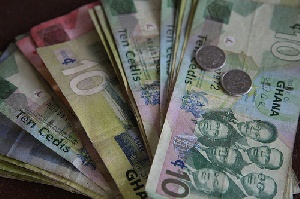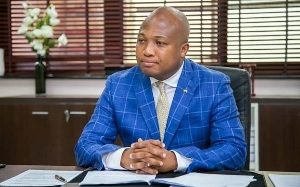This is an issue I have written about before, albeit in passing. Year in year out, some of the players that distinguish themselves in Ghana’s top flight end up leaving for other countries, not because the Leagues there are high profile, but because at the very least, a better monthly pay packet awaits them.
Indeed, low levels of monthly pay packets are major reasons why players would want to leave after perhaps excelling for just a season in the Ghana Premier League.
This piece will seek to make suggestions as to how clubs in Ghana can restructure payment plans that can, in the medium-to-long term, stem the mass exodus of players from the Premier League.
The reality is that these days, players will move to clubs based on the size of the enticement fee offered them.
To wit, the enticement fee is a lump sum paid upfront to a player when the player joins a club. For instance, a player will join Asante Kotoko or Hearts of Oak these days not because of the profile of the two clubs, but because he could be offered an amount in the region between GH¢30,000 and GH¢50,000 for a period of two years or more.
What eventually happens is that after such a lump sum is paid, the player will earn between GH¢200 – GH¢1500 per month at the top six clubs in Ghana.
By this I don’t mean the best six teams per se; I refer to Asante Kotoko, Hearts of Oak, Berekum Chelsea, Medeama SC, Aduana Stars and Ashanti Gold in terms of ability to pay.
For the other clubs, I can tell you that there are some players currently earning as low as GH¢30 a month.
So what this means is that if matches are not won, match winning bonuses are not paid and that leave the player financially strapped.
I say this advisedly because most of the players are more often than not ill-advised and as a result, tend to blow away the lump sum given them, leaving them to rely on the monthly stipends coming through.
The clubs also leave themselves at risk too after paying such huge sums of money to players, especially when the money is paid up front.
One club that has suffered as a result of this is Medeama SC, which paid out huge sums to lure top talent to the club, only to discover that more than half the recruits were carrying various injuries and thus would not play the number games expected.
Two clear cases in point were Daniel Larbi Koomson and Tanko Mohammed.
These days, I am told that clubs would normally pay half of the lump sum upfront, with the rest spread over the duration of the contract.
Again, most clubs sometimes fail to pay the full lump sum, leaving players owed to manipulate their way out of a club.
A clear case in point is Kofi Nti Boakye, who was told he would receive a lump sum of GH¢50,000 after signing for Asante Kotoko.
He received half of the money and because the other half was not forthcoming, he refused a contract extension offer, run down his contract and then moved to Libyan club al Ahly on a free; pocketing a sum in the region of $900,000 in the process.
So clearly, the current system of payment is one that does no one any good. Most players are bread winners for their families, and if a footballer knows that he can get a better pay packet in Gabon for example, he would do everything to engineer a move.
The clubs also seem set in their ways and will probably not consider the suggestions I am about to make in this piece, but those clubs will be better off if the suggestions are taken on board.
First of all, the convention of enticement fees should be abolished once and for all. If clubs have that much money to spend, apart from paying transfer fees for the players they want, then what stops them from spreading it across the length of a player’s contract?
When that happens, a player could earn as much as GH¢3000 a month after tax and perhaps, instead of a huge lump sum, clubs can decide to hand newly signed on players an amount equivalent to three months’ salary.
So for example, if a player will earn GH¢3000 a month, then the player will receive an amount in the region of GH¢9000 when he signs for the club.
With the usual match winning bonuses constituting supplementary income, players would be much more comfortable and less and less players would want to leave.
Again, there should be a close scrutiny of the type of individuals who claim to manage players. Indeed, some of them are semi-literate and all they are concerned about is making a quick buck.
As a result, the players they manage are badly advised and in most cases, end up the losers. Maybe the Ghana Football Association can design a program people would have to go through to become qualified ‘player-managers’ in that context.
That will go a long way towards weeding out the undesirables who could put the player’s career in jeopardy.
Finally and rather controversially, it is time for clubs to stop corrupting referees. A few years ago, a friend of mine told me that he sighted the detailed accounts of an unnamed Premier League club at the time.
Under the heading ‘Expenditure’, there was a sub-heading given the title “Ref” and under that heading, there was a detailed account of how much money has been spent on referees for that season alone.
I am reliably informed that potential sponsors saw that detail and decided against investing in that club. It is the worst kept secret in Ghana football that virtually all clubs either attempt to or bribe referees to handle matches in their favour.
Indeed, the going rate for some referees is GH¢6000 for a single game during the Premier League season. Some clubs, with the juicy prospect of gaining promotion to the Premier League, sometimes go to the extent of paying as much as GH¢18,000 or more for a single match in the Middle League.
For instance, there were allegations that a referee collected a sum of GH¢20,000 to influence a game in a club’s favour during the Middle League this year.
All I would ask is that if the clubs have this much money to bribe referees, why can’t they rather channel such monies towards the welfare of their players, pay them better so that they play better on the field of play?
Some might say that my argument is too simplistic but for me, that is the way to go. After all, a club can pay even GH¢10,000 to a referee to influence a game, but if the players of that club are poorly motivated and are not good enough, then the club could still lose the game.
How then does the club claim back the money since it is akin to using counterfeit money to pay for marijuana? There will be no record of transaction and you can only imagine the chaos that would ensue after such a game.
In my opinion, it makes no sense to bribe referees when you can better motivate your players to do well. So my clarion call to clubs is to stop unjustly rewarding referees because, apart from bankrupting themselves, the clubs will end up in a far weakened position than before if such practices continue.
In short, investing more into players enables the players to also contribute meaningfully when it comes to pension schemes from the Social Security National Insurance Trust (SSNIT) and thus secures a future of some sort for the players.
All I am saying is that the current method of paying players in this country is becoming increasingly outmoded and the sooner more prudent and financial practices are utilized by our clubs, players would continue to leave this country faster that Floyd Mayweather Jnr would throw a punch.
Sports Features of Tuesday, 1 October 2013
Source: Christopher Opoku

















